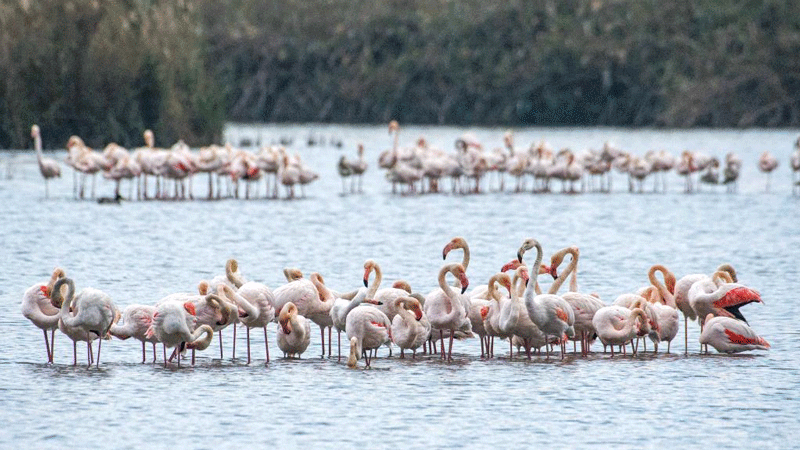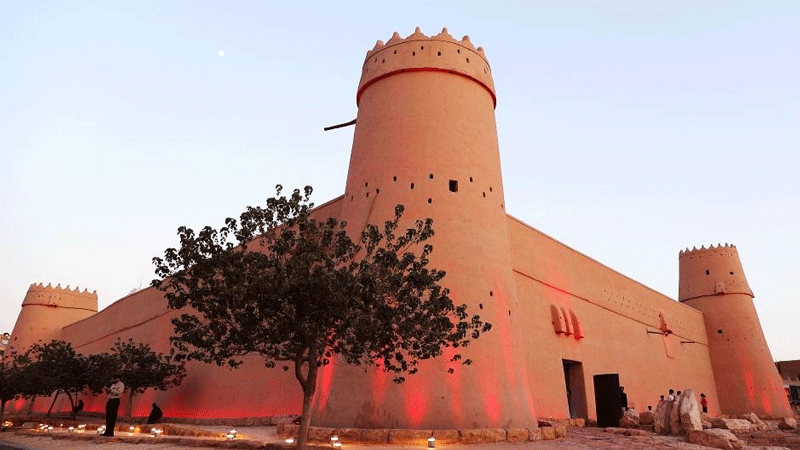Alan Macfarlane, social anthropologist at University of Cambridge: Playing a concerto of civilisations
Professor Alan Macfarlane, a Fellow of the British Academy, is an anthropologist and Fellow of King's College at the University of Cambridge. Over the years, he has developed a unique set of comparative research methods through posing a series of questions, combined with field visits and academic theories. He has put his knowledge to use by not only publishing a number of influential works in the scientific, humanities, social sciences and art fields, but also by co-founding Cam Rivers Publishing, an independent publishing company based in Cambridge, with his colleague and former student Zilan Wang. He has chaired several influential international cultural exchange projects, such as the Cambridge Xu Zhimo Poetry & Art Festival, with the aim of building a cultural bridge between the UK and China.
In this episode of Our China Stories, Professor Macfarlane shares the insights into Chinese civilization that he has gathered over the past 26 years, and tells us about his lifelong aspiration to deepen understanding between the two civilisations and achieve the harmonious development of different communities.

Alan Macfarlane
Getting to know China for the first time, opening the door to a "new world"
People’s Daily Online: You know a lot about China. Could you please tell us a little bit about how you got to know China?
Alan Macfarlane: It was very late in my life that I encountered it. I was already 55 when I first thought that it would be wonderful to go to China. That was all you could really do in 1996, which is when I went, so we went for 10 days, around the Great Wall, Xi’an, and Guilin, and elsewhere, and I was amazed.
In 2002, I was invited by Professor James Lee. He took us to remote villages. We began to see behind the face of China, and, again it was extraordinary and fascinating. In 2003, we went back again. And on that second occasion, it was even more extraordinary, because we went all over Central China, to Wuhan, across up the Yangtze, to Yunnan, Sichuan, and Shangri-la, among others, and saw both rural and urban China, and how it had changed even in the seven years since 1996. It was very much richer and from then on we went to China almost every year. I became a visiting professor at a number of Chinese universities, and I began to meet people at every level.
I found that in studying other civilisations, you’ll never become Nepalese, or Japanese, or Chinese. The only way really to get quickly down deep into a civilization is through friendship, and through honesty and exchanging. My wife kept wonderful diaries which I have, but I took a lot of film. So I have a really superb film footage of China between 2002 and the present. Probably almost unique. But it took 10 to 15 years to get down to a deeper level.
People’s Daily Online: In the trips you mentioned, you traveled to many places and made many friends. Could you tell us something about your Chinese friends and your favourite cities?
Alan Macfarlane: If I had to choose some special relationships with Chinese and one or two special places, my mind is immediately crowded with memories, because not only did I benefit hugely from having students who could explain things, but they were also mostly young and very talented. I also met more experienced, interesting people and that has been one of the great privileges.
I met, particularly interestingly for me, a number of the top Chinese Buddhist monks. I also met leading educationists and I have written a book with them. I met top historians, and some of the best political scientists. I’ve had a real cross-section of all different kinds of Chinese. Many of them I met over here too. They visited us, and came to my college, King’s College, and brought the Kunqu Opera with them, and I met people in the artistic fields. Top Chinese painters, top Chinese musicians, almost all different aspects of China.
In terms of places, people often ask me: what is your favourite place in the world? My response is that it’s like a basket of fruit - how can you say you prefer apples to oranges or grapes? China is so diverse, which is one of the things I love about it, because I’ve been there 17 times, but each time it feels as if I’m going to a new country, because the parts of China are the size of European countries, and cultures and languages and everything are so different that you never get tired of it. With China, you can go to the east, the west, the north, the south of the country, and it’s all very different. So travelling across China, if possible by train or car, you see so much variety, beautiful villages, local architecture, and of course, wonderful cuisine everywhere in the country.
Above all, I think, what I tell people and why my wife Sarah and I go back to China again and again, apart from the beauty, the food, the buildings, these friendships, is the people. When I went to China, I discovered that the Chinese are like that. Very warm, very caring, they look after us beautifully when we go to China and they are very loyal. Many of my Chinese friends go back over 20 years now. In China, they maintain the relationships, and it becomes real friendship.

Alan Macfarlane
Composing concertos, embracing foreign civilisations
People’s Daily Online: There are a good number of sinologists in Cambridge, Oxford, and London. As an anthropologist and historian, how do you think the knowledge you have gathered and the opinions you have formed while studying Chinese civilisation differ from those of other sinologists?
Alan Macfarlane: How different, I wonder sometimes, is my approach to China from many scholars who know far, far more than I do. I think the answer is that China needs anthropology, which is my subject. Anthropology is the total study of human beings. It does not separate off one part of life. In anthropology, you have to study religion; you have to study politics; you have to study economics, and you have to study society. That means it is a total approach. It is also a comparative approach, and that means that you are always setting whatever you are studying against, or in comparison, to something else.
In order to understand China, you have to stand right back. Look at 2,000 years of history, and look at the whole of China, and then you also have to go down and look at one village and one person and one monastery, and then if you combine these macro-visions with micro-visions, you can begin to understand something about China. I’ve got a library with over 1,000 books on China, and I have read half of them, and if I had just read those and hadn’t been to China so often, if I hadn’t got Chinese friends, and I hadn’t travelled widely in time and space, I would really still not understand China, and that’s why many Westerners find it almost impossible to understand China.
People’s Daily Online: You recently wrote some books about China, such as The Four Civilisations, which was recently published in China. Could you tell us about your research and understanding of Chinese civilisation based on this book?
Alan Macfarlane: I must have written it in 2017 to 2018, and it was published in the West in 2019 and quite recently published in Chinese this year, and it’s called China, Japan, Europe and the Anglosphere. The major idea in this comparison of four civilisations book is that we should try and simplify civilisations down to their essence.
I took the idea basically from Alexis de Tocqueville, who is my hero and he had the idea that you can simplify many civilisations down to three or four or five things. This is what I try to do: I tried to take, in each case, five or six things which are quite simple to understand. Unless you understand that, you can’t begin to understand China.
China is a totally other and the task I set myself and my life’s task increasingly is to try and bridge that because the aim of anthropology, and the greatest anthropologists, is to be a part of your own civilisation, but then to have an imaginative leap, whereby you suspend some of your prejudices and some of your categories and become a member of another civilisation. You don’t lose your identity, but you understand them, get inside their world, and then you try and see what is in common and what is different.
So that book was trying to provide a bridge to the readers and to replace Huntington’s idea of a clash of civilisations, with an idea of a harmony of civilisations. In harmony you have different lines on the musical score. Say, the violin paying this, the cello playing that, the double bass playing that, and they don’t clash, they work together, they retain their difference. A violin doesn’t become a double bass. It remains a violin, but you have harmony. And harmony is a big principle in Chinese philosophy of course. So, I believe that the world through understanding, can be much more harmonious.
Working together to build a bridge between our cultures
People’s Daily Online: We are coming up on the fifty-year anniversary of the establishment of diplomatic relations between the UK and China. What can you say about this event?
Alan Macfarlane: This is an auspicious year. It is the 50th anniversary of the setting up of formal diplomatic relations on the ambassadorial level between China and the UK. Therefore, it is a time to think about friendship. As China becomes more and more influential, it’s essential that people in this country learn how China works, and it’s also essential if the Chinese are going to be successful in the world that they understand how the West works. So, the more kinds of interactions, at the school level, through school education, at the university level, through cultural events, such as the ones we hold in King’s College, where we have a musical and poetry festival in the honour of Xu Zhimo and other things, the better. Vice versa, the more things that we can do that is the better.
The one single thing I’d really recommend is that any organisation trying to do something useful should make sure that they have two or three sane, practical, sympathetic, knowledgeable people from that culture in the team that is trying to do it.
People’s Daily Online: So is this one of the reasons why you co-founded a publishing company, and why you are working with several editors from Cambridge backgrounds to help with your various publishing projects?
Alan Macfarlane: In my efforts to try and promote intra-cultural communication, I realised you have to work at all sorts of levels. You work at conferences, you work at seminars, you work at teaching summer schools, you work in cultural festivals. But obviously one of the main ways is through publishing. And so my gifted colleague Zilan Wang and I set up a publishing firm about six years ago, called Cam Rivers Publishing. The explicit aim of this is to act as a cultural bridge between China and the West. So we co-publish. We are one of the few firms which has an equal presence in China and in the West.
In Cambridge, we have our office and shop and we have very good relations with the top Chinese publishing firms, including The Commercial Press, a leading academic publishing company in China, as well as many other good publishers who publish our books. And by working like this, we translate Chinese books into English and vice versa, publishing interesting thoughts from the East here, and the best of our thoughts to China. And through the publishing and other exchange projects, we can actually communicate through these large cultural differences.
Photos
Related Stories
- China hopes Britain will nurture bilateral cooperation: FM spokesperson
- Mark Pollard: An obsession with China that isn’t going away
- Britain should respect legitimate rights, interests of Chinese companies: spokesperson
- Ronnie O'Sullivan: Building a bridge of snooker between China and UK
- Ambassador calls on Chinese, British business communities to further promote cooperation
- Angela Smith: Strengthening Sino-British friendship through football
- Diplomat highlights opportunities for Sino-UK ties
- British young man aspires to become envoy of UK-China friendship
- Chinese FM meets Britain's foreign secretary on sidelines of UNGA session
- Chinese president's special representative attends Queen Elizabeth II's funeral in Britain
Copyright © 2022 People's Daily Online. All Rights Reserved.









